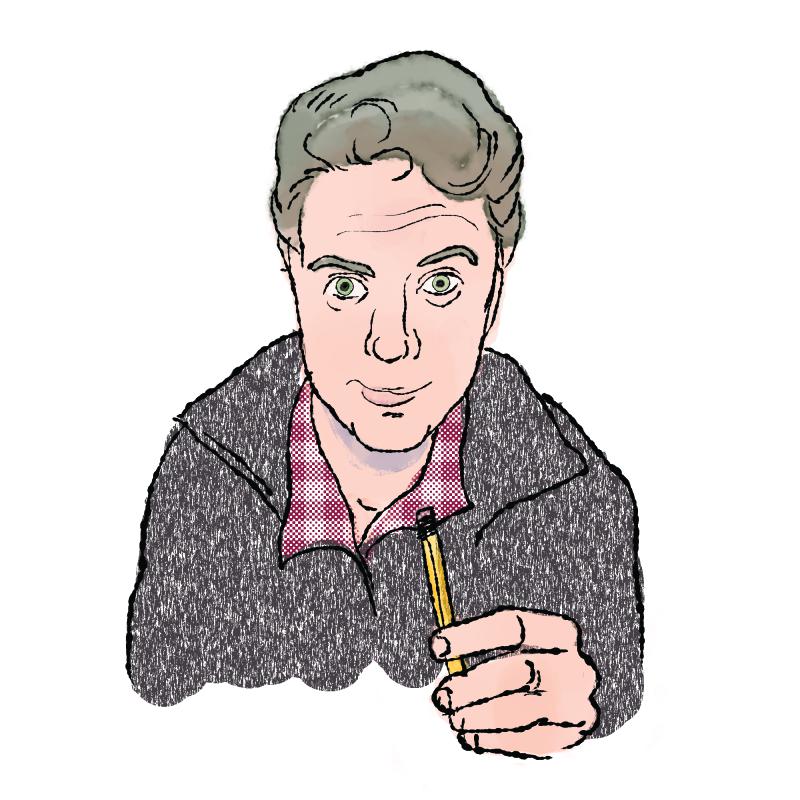In a pocket of my work bag, I carry a talisman of sorts. It’s a patch from the First Marine Division, aka “The Old Breed.” A man named Harris Mills gave it to me years ago. He was a family friend, and an imposing, if grandfatherly figure — tall, well-coiffed, and animated, with a big Memphis accent and a flair for storytelling.
He often weaved tales of his experiences with The Old Breed, with whom he stepped ashore at Guadalcanal and fought in the bloody battle for Peleliu in the South Pacific during World War II. His stories were spellbinding. They were also matter-of-fact and indiscriminate in their details. He never glossed over anything. One story contained mention of body parts strewn across an airfield, its growing tension relieved by an absurd encounter with an iguana while bombs fell all around.
When Memorial Day and Veterans Day arrive, I think of Harris. I thought of him, too, when the idea of thanking veterans arrived again in recent days. It’s the sort of thing one isn’t supposed to question; to do so would be, it seems, un-American. The template most of the time is thanking veterans for protecting our freedoms and/or our way of life.
There’s a big problem with that idea. It forces the thanker to embrace the oversimplified, comforting notion that soldiers — no matter the particulars of a conflict — live and work in a world of lofty ideals, and it glosses over the reality of what we really ask of soldiers. They enter a fight that sometimes goes on for a lifetime.
Harris Mills fought in the war most Americans think of as unambiguous: Germany and Japan wanted to conquer the world, and the Allies had to stop them. Even so, he said something that’s at odds with the heroic depictions of World War II soldiers that prevail in popular imagination. He recalled answering the question of a fellow Marine who hadn’t seen combat yet by telling him that, when the bullets started flying, notions of fighting for God and country were replaced by a more primal idea: “I was fighting for my ass,” he said.
That does nothing to diminish the importance or enormity of what he did. But what we ask of soldiers is — was even in 1943 — something they can’t accomplish with easy notions of patriotism alone. We owe them more than easy notions of patriotism in return.
I came to know several veterans of Iraq and Afghanistan while working on a non-fiction project with Amherst artist Matt Mitchell, whose monumental, recently completed 100 Faces of War Experience is a collection of portraits of Americans who went to those wars. I interviewed several of his portrait-sitters in extended fashion.
One former Marine had undertaken in-depth academic study, something that seemed to be a help in the midst of intense emotional turmoil. One woman I spoke to kept invoking God and resorting to platitudes when the questions got specific. A vet named Rick Yarosh seemed, surprisingly, little-troubled by his circumstances — an IED explosion left him with disfiguring burns and an amputated leg — but he bore the obvious signs of his ongoing, permanent physical battle.
I spoke to another vet named Ash Woolson repeatedly. PTSD had hit him hard. One day I asked him how he was doing. He said, “I imagine that you want to know the truth in how I’m doing. But you never actually want to say, ‘Well, it sucks. I did this and this and this yesterday, and I passed out in the backyard and didn’t wake up until two in the morning when it was raining and my head was in a puddle and I was fucking shivering. But then I woke up and crawled my ass inside.’ You don’t want to go through that with people. They don’t understand.”
Every one of the vets I spoke to, in some fashion or another, was still fighting, though the battle was no longer front-page news. The reasons for their struggles, no doubt, are many. I find it tempting, as someone who stoutly opposed the Bush administration’s push toward conflict, to blame the shifting rationales and questionable motives of that administration for burdening our soldiers with ambiguity and lack of resolution. It’s tempting, too, to blame the uncertainty that’s become a consistent feature of modern combat: the enemies American soldiers have faced in the past few decades have often been indistinguishable from the peaceful population with which they mingle. Moments of decision about when to pull the trigger are much more complicated than they were in the days of foxholes and obvious uniforms. We ask our soldiers to endure the unendurable, and to enter battles that don’t necessarily end when they come home.
When somebody suggests I thank a veteran, I feel queasy — those simple platitudes won’t do. I feel like it would only be sufficient to express my gratitude that they’ve stepped outside the bounds of polite society on my behalf. I feel more like I should apologize for failing these brave souls. Supporters of the Iraq War asked them, for inconsistent, ever-shifting reasons, to expose themselves to the possibility of death and of a lifetime of internal struggle. We who opposed the war failed to stop those who asked them to take those risks.
So, sure. Thank a vet. But thank them for what they really did. Ask them how they are — if you’re prepared to hear the real answers. We who sent them to war owe them that.•



